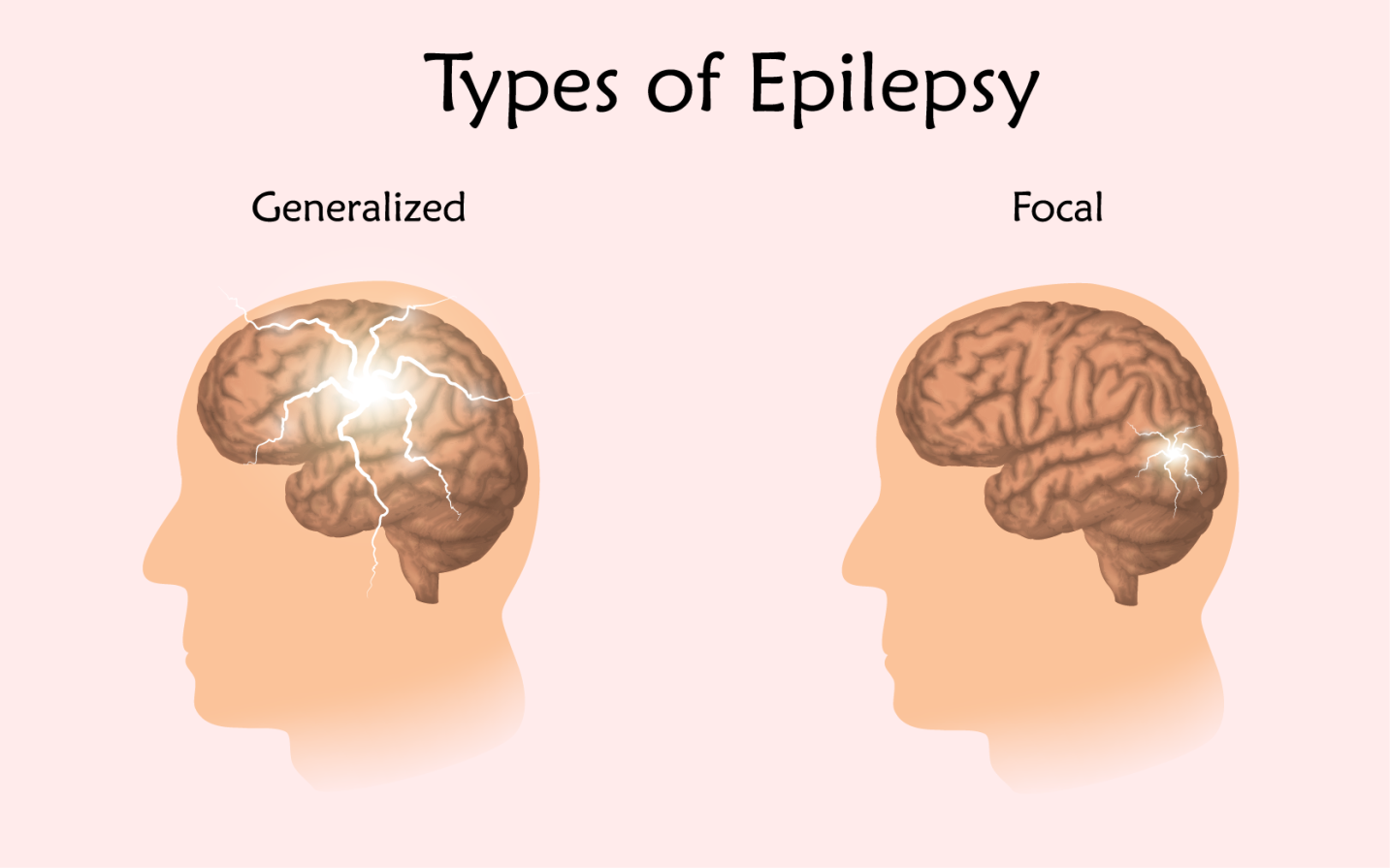Anything that disturbs the normal pattern of neuron activity, from illness to brain damage to abnormal brain development, can lead to seizures. Epilepsy may develop because of an abnormality in brain wiring, an imbalance of nerve signaling chemicals called neurotransmitters, changes in important features of brain cells called channels, or some combination of these and other factors.
One single seizure often does not warrant treatment unless co-existing with other neurological features, or abnormal EEG or brain imaging.
Possible triggers of epilepsy:
- Stress or anxiety.
- Some medicines such as antidepressants, and antipsychotic medication (these lower the seizure threshold in the brain).
- Lack of sleep, or tiredness.
- Irregular meals (or skipping meals) may cause a low blood sugar level.
- Heavy alcohol intake or using street drugs.
- Flickering lights such as from strobe lighting or video games.
- Periods (menstruation).
- Illnesses that cause a high temperature (fever), such as flu or other infections.
When to see a doctor?
If you witness someone having a seizure, call an ambulance immediately if:
- The seizure happens in the water, or you think this might be the person's first seizure
- The seizure lasts more than five minutes
- Another seizure starts right after the first
- The person can't be awakened after the movements have stopped
- The person has several seizures and doesn't regain consciousness between them
- The person is pregnant or has another condition, such as heart disease or diabetes
- The person injures themselves during the seizure
مرگی
کوئی بھی چیز جو دماغ کے خلیات کے معمول میں خلل ڈالتی ہے ، دماغی بیماری سے لے کر دماغ کی غیر معمولی
نشوونما تک ، وہ مرگی کا باعث بن سکتی ہے۔ دماغ کی وائرنگ میں پیدا ہونے والے سگنلنگ کیمیکلز (signalling chemicals) کا عدم توازن ، جسے نیورو ٹرانسمیٹر (neurotransmitters) کہا جاتا ہے یا دماغی خلیوں کی اہم خصوصیات میں تبدیلی ، جسے چینل (channels) کہتے ہیں ، ان کی خرابی کی وجہ سے مرگی پیدا ہو سکتی ہے۔ ایک دورے کے لئے اکثر علاج کی ضرورت نہیں جب تک کہ دیگر اعصابی خصوصیات ، یا غیر معمولی ای ای جی یا دماغی امیجنگ کے ساتھ کی خرابی نہ ہو۔
مرگی کے ممکنہ محرکات
- تناؤ یا اضطراب۔
- کچھ دوائیں جیسے اینٹی ڈپریسنٹ ، اور اینٹی سائکوٹک ادویات۔
- نیند کی کمی ، یا تھکاوٹ۔
- غیر منظم کھانا (یا کھانا چھوڑنا) جو بلڈ شوگر کی سطح کو کم کرنے کا سبب بن سکتا ہے۔
- الکحل کا زیادہ استعمال یا اسٹریٹ ڈرگ کا استعمال۔
- ٹمٹمانے والی لائٹس جیسے اسٹروب لائٹنگ یا ویڈیو گیمز سے۔
- حیض۔
- بیماریاں جو زیادہ درجہ حرارت (بخار) کا سبب بنتی ہیں ، جیسے فلو یا دیگر انفیکشن۔
ڈاکٹر سے کب ملنا ہے
اگر آپ کسی کو دورے پڑتے دیکھتے ہیں تو فوری طور پر ایمبولینس کو کال کریں اگر:
- دورہ پانچ منٹ سے زیادہ رہتا ہے۔
- ایک اور دورہ پہلے دورے کے بعد دوبارہ شروع ہوتا ہے۔
- دورہ بند ہونے کے بعد انسان بیدار نہیں ہو سکتا۔
- اس شخص کو کئی دورے پڑتے ہیں اور ان کے درمیان دوبارہ ہوش نہیں آتا۔
- وہ خاتون حاملہ ہیں یا اس ان کو کوئی اور بیماری ہے ، جیسے دل کی بیماری یا ذیابیطس۔
- شخص دورے کے دوران خود کو زخمی کرلیتا ہے۔
- دورہ پانی میں پڑتا ہے ، یا آپ کو لگتا ہے کہ یہ اس شخص کا پہلا دورہ ہو سکتا ہے۔
Doctors to consult (Neurologist):
Dr Gulab Shah Kakar, Dr Samad Panezai, Dr Saeed Shaikh
Note: Click the Doctor's name to make an appointment.
Reference:
https://www.mayoclinic.org/diseases-conditions/epilepsy/diagnosis-treatment/drc-20350098
https://www.ninds.nih.gov/Disorders/All-Disorders/Epilepsy-Information-Page
https://patient.info/brain-nerves/epilepsy-and-seizure

